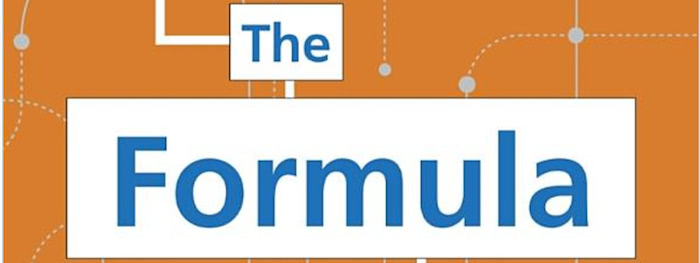The Formula, Paper Reading, and Arrival
While reading The Formula, by Luke Dormhel, a treatise on the many ways computers (and other scientists) have attempted to quantify and algorithmically understand the world, I was struck by this idea of our past present and future. What kind of future are we looking at when humans are replaced by robots and even laws are being handled by artificial intelligence? The answer is, I don’t know, but it got me thinking.
Invariably, the idea of quantifying a thing down to its very simple structure and building it back up means that we’re working to predict the future. For instance, the very models of movie box office predictions are so complex now that they change daily and weekly. Those that are predicting how many people will watch movies are making the kind of unpredictable future, very predictable.
But, the very idea that “prediction” is a bad word has been lingering with me lately. That those who seek to understand the future can not possibly get past a force field of bias to see what’s next (no thanks to Scott Adams) is, to me, absurd. This had me thinking of the insanely good movie Arrival and one of its central conceits – spoiler alert – is that Louise Banks is able to see all time as one as she learns the alien’s new language.
The DVD’s special features go a little further in explaining the roots of the idea of seeing the past and future, and Einstein said both sides should be possible. The example given by Stephen Wolfram was incredible, and I paraphrase: “when a raindrop is falling, we know it’s future, but we can not understand its past (where it came from, how it was formed, etc)”. There clearly seems to be precedent in the physical world for understanding a kind of flawed view of the future just like our own flawed view of the past.
Could it be that an algorithm could take inputs of the lives and routines of every measurable human on earth, combine that with data mining, some AI, and then fairly accurately tell you what your tomorrow would look like mentally, physically, and monetarily? Would we humans, with all our in-built biases against this and that, accept such a thing as an enhancement to our lives, or an evil? As a member of humanity and knowing the little I know about our proclivities, I’m going to say: evil.
I’d often thought we humans need to get over ourselves.
This is all to say, I guess, in this Trumpian post-truth era, we all have much to learn about the impact of automation, robotics and algorithms on our lives. The Formula is as good a place as any to introduce yourself to the concept. It’s a topical overview, so don’t expect actual code descriptions or elaborate details of how Facebook decides what you see in your feed.
And, how about the resilience of paper books? While reading this book on paper, I was struck by how we’re seeing a resurgence, or perhaps, resurgence of paper books. Being in front of technology all day, I’m more aware of the wonderful respite paper gives me from that screen-filled world.


